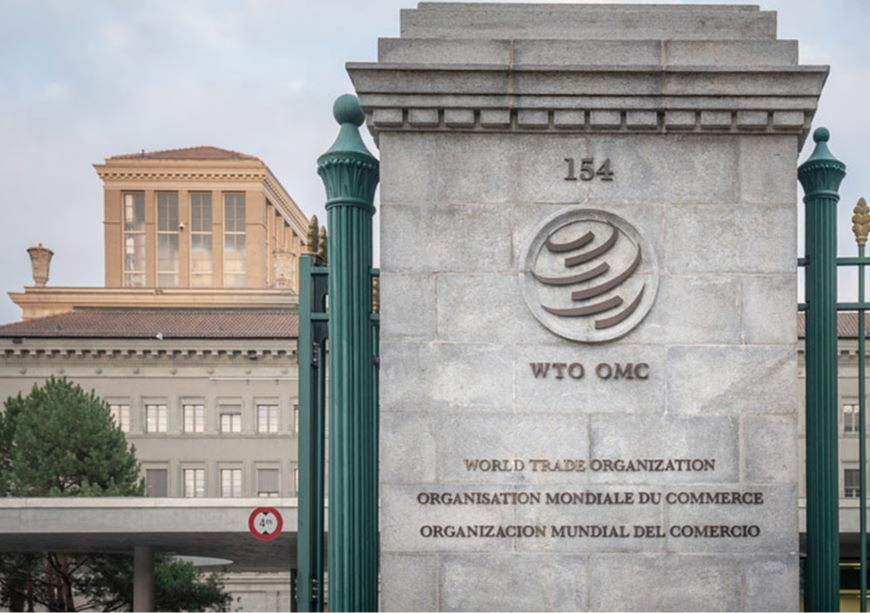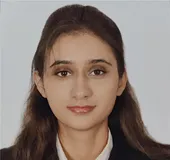-
CENTRES
Progammes & Centres
Location
Amidst economic and geopolitical uncertainties, the lack of movement on reviving and reforming the World Trade Organisation will only exacerbate divisions within it

With the dust settling on the 13th Ministerial Conference (MC13) of the World Trade Organisation (WTO), there has been time to review and reflect on what was and was not said at this year’s biennial meet of the apex trade body. WTO MC13 has perhaps done all it could in a heavy election year, with 64 national elections set to take place. This could have contributed to the modest gains that MC13 saw if they can even be called such. Four main developments, or the lack of progress thereof, can help us assess this ministerial conference.
First, WTO members still have an appetite for multilateral rulemaking. This is signified by the one-day extension of MC13 to gain clarity on the work programme for the coming two years. It would have been easy to end the conference with no declaration or consensus, as was seen seven years ago at MC11. The extension of the conference is certainly outside the norm and a testament to the overall commitment to and value of multilateral cooperation for trade issues.
The experience of the initial GATT, while a milestone in international trade history, left a bad taste for several countries in the so-called Global South.
Second, large developing economies refuse to be bulldozed leading to a fraying consensus. The experience of the initial GATT, while a milestone in international trade history, left a bad taste for several countries in the so-called Global South. Therefore, countries such as India and South Africa, among others, are resisting new barriers to trade in the name of non-Doha issues like standards for green trade and investment facilitation. The Joint Statement Initiatives (JSI’s) which have become the fora for moving discussions on non-Doha issues between ‘like-minded’ partners are both a problem and a solution. The JSIs a simply smaller groups within the WTO which had issued a joint statement during the 11th Ministerial Conference of the WTO in 2017 and declared an intention to work together on issues which a majority of the members were unwilling to discuss formally at the time.
It is problematic that India, an economy pivotal to discussions on Services Trade, E-Commerce, Investment, and MSMEs is not a part of these discussions. The country’s dissatisfaction with JSIs has solid legal and economic grounds. The legitimacy of JSIs is tenuous. If rulemaking is going to be plurilateral, it is better done outside the WTO, not forcing the hand of members of the WTO who are sceptical of binding rules on these issues. On the flip side, if the momentum that JSIs have gathered is here to stay, India must make haste to do two things—fill the domestic policy space on these matters and then move forward with discussions at the WTO. Domestic clarity will be key so that we do not get swept by the tide of international rules and are caught off guard.
Third, what happens in Geneva often strays outside. The issues of agriculture and fisheries subsidies would have had global ripple effects; it is no wonder that several countries withheld their support. The issue of subsidies is always a sensitive one, especially so when sensitive sectors like agriculture are involved. Accepting binding rules on these issues would not be welcomed at home in most developing economies. The extension of the moratorium on e-commerce is perhaps the minimum we could have hoped for. The mortarium disallows countries from charging customs duties on digital transmissions. This is a polarising issue within the WTO with countries like India wanting to lift the moratorium while others like the EU want a permanent moratorium.
It is problematic that India, an economy pivotal to discussions on Services Trade, E-Commerce, Investment, and MSMEs is not a part of these discussions.
The revival of interest in the Working Group on Trade and Transfer of Technology is an interesting development that bears mention. A submission made by the Africa Group in July 2023 has been the catalyst for the single paragraph mentioned in the MC13 declaration.
Fourth, but most importantly, it is about time WTO members accepted culpability for essentially disabling the dispute-settlement mechanism. It is symptomatic of a house out of order. The decision on the dispute-settlement body (DSB) reform released as part of the MC13 decisions is lacklustre. The body which has been disabled since the Appellate Body (the standing arm of the DSB) has had no sitting member since November 2020. This has not stopped countries from filing WTO appeals creating a strange sort of stalemate. It is akin to a democratic state functioning without a judiciary—dubiously.
The ‘State of Play’ document on WTO reform is telling of a systemic problem. Titled ‘Reform by Doing’, an ideal expectation would be to see critical steps to make the WTO more responsive and valid. It identifies some of the more serious problems that face WTO councils in coordination and implementation of WTO rules including different levels of digitalisation between countries. However, it goes on to list specific procedural changes in the internal working of the various councils with no real change mentioned.
Titled ‘Reform by Doing’, an ideal expectation would be to see critical steps to make the WTO more responsive and valid.
According to this document, between MC12 and MC13, the biggest movement for the DSB has been a procedural ability to “hyperlink documents to airgrams”. The update from the DSB itself is that informal negotiations over time have led to the drafting of a 50-page reform document, currently in its fifth iteration, with a sixth iteration underway. The members were unable to agree in time for MC13 on when and where this should move to the formal track leaving us in the dark on what real progress has taken place on reforming the body.
Members must seriously consider that a lack of movement on reviving the mechanism will exacerbate divisions within the WTO. Countries will not feel secure committing to new, binding, international rules without a strong appellate body that can safeguard the interests of the members.
Jhanvi Tripathi is an Associate Fellow at the Observer Research Foundation
The views expressed above belong to the author(s). ORF research and analyses now available on Telegram! Click here to access our curated content — blogs, longforms and interviews.

Jhanvi Tripathi is an Associate Fellow with the Observer Research Foundation’s (ORF) Geoeconomics Programme. She served as the coordinator for the Think20 India secretariat during ...
Read More +